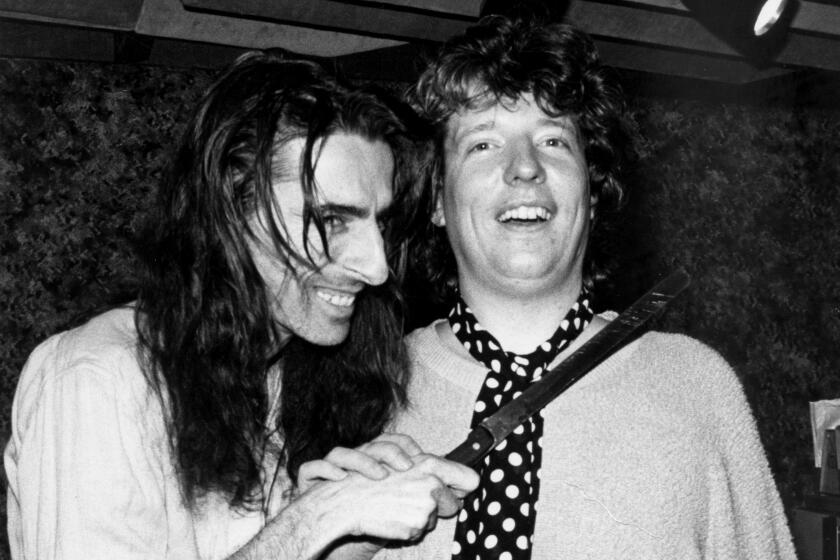From the Archives: Debonair Actor Brian Aherne Dies at 83
- Share via
Brian Aherne, who epitomized the debonair, self-assured British gentlemen in more than three dozen films while simultaneously establishing himself as a viable stage presence, died Monday in a hospital in Venice, Fla.
His wife, Eleanor, said by telephone from their home in Boca Grande that Aherne had been taken to the hospital last week. “His heart just gradually gave out,” she said. He was 83.
Retired from the stage and screen for nearly 20 years, Aherne in his prime played opposite some of the most glamorous actresses of the century—Marlene Dietrich, Katharine Cornell, Helen Hayes, Katharine Hepburn, Madeleine Carroll and Bette Davis. In most of those appearances he was the impeccably mannered and meticulously groomed consort to their more tempestuous characters.
It was not altogether an act.
Brian De Lacy Aherne was born into the comfortable upper middle-class that dominated Great Britain at the turn of the century. His father was a successful architect and his mother a frustrated actress who imbued her three children with a dramatic spark. Brother Patrick and sister Elena were to have their own theatrical careers but none to match Brian’s, who broke into things theatrical as a boy doing pantomimes on neighborhood stages at Christmastime. A fellow performer was Noel Coward.
Young Aherne attended Malvern College, where he studied architecture, but he forsook school in 1923 to play in “Paddy, the Next Best Thing,” a regional play. He then moved onto the British silent screen in “The Eleventh Commandment,” “The Constant Nymph” and others, while touring Australia in stage performances of “What Every Woman Knows” and “Aren’t We All.”
In 1931 he came to Broadway to portray Robert Browning opposite Cornell in “The Barretts of Wimpole Street.” A New York Times critic hailed his performance as “all strength, kindness and sincerity.”
He was lured from the touring company of “Barretts” to appear on screen opposite Dietrich in “Song of Songs” in 1933, launching a film career that was to end in 1967 in “Rosie” with Rosalind Russell. In between were “Beloved Enemy,” “Juarez” (as the Emperor Maximilian, his only Academy Award nomination); “My Son, My Son!,” “Skylark,” “My Sister Eileen,” “Forever and a Day” and “The Swan,” among others.
During World War II he toured American military camps and then went overseas for the American Theater Wing to recreate his role of Browning. After the war (and a brief Broadway run in “The French Touch”) he returned to Hollywood for “The Locket” but by 1949 was back on Broadway as Young Marlow in “She Stoops to Conquer.” Next was a revival of the W. Somerset Maugham comedy “The Constant Wife” where his performance opposite Cornell brought him praise as “an actor of distinction.”
In 1939 he had married actress Joan Fontaine but they were divorced in 1945. Two years later he wed Eleanor Labrout and they settled into what she remembered Monday as a “quiet, gracious life together.”
He was to make a few more films and two distinctive stage appearances--one as George Bernard Shaw opposite Cornell in “Dear Liar” and the second in the touring company of “My Fair Lady” as Henry Higgins.
The Ahernes lived alternately at a beach house in Santa Monica they purchased from Cary Grant and Barbara Hutton, a villa in Switzerland they found with actor George Sanders, a lifelong friend Aherne wrote of in a biography he titled “A Dreadful Man” in 1979, and finally the home his wife bought for them in Florida.
He also published a popular autobiography “A Proper Job” in 1969. The title, he said, was facetious. It came from his lack of faith in acting as a serious career.
“Never was all that impressed with the glamour of it,” he allowed.
More to Read
Start your day right
Sign up for Essential California for the L.A. Times biggest news, features and recommendations in your inbox six days a week.
You may occasionally receive promotional content from the Los Angeles Times.






